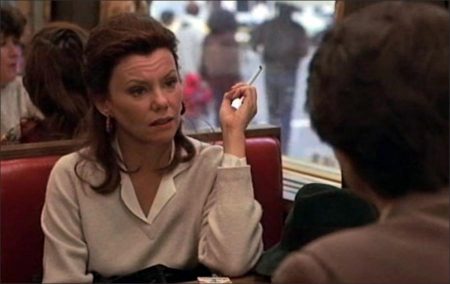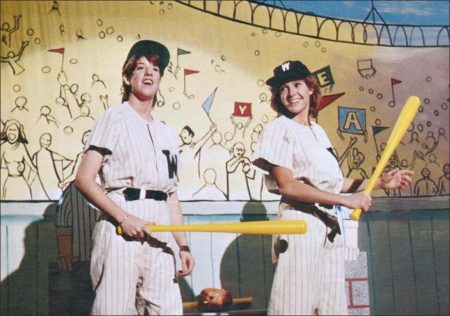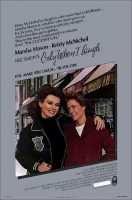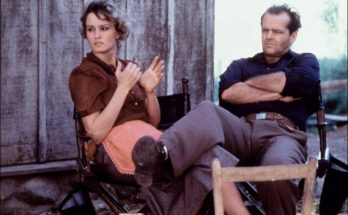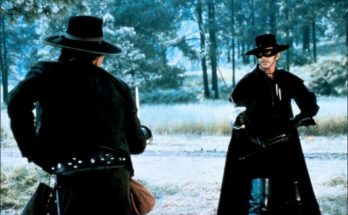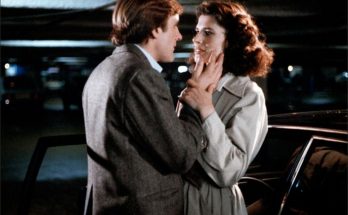Taglines: It’ll make you laugh…’til you cry.
Only When I Laugh movie storyline. Actress Georgia Hines is being released from a rehab center where she has been undergoing treatment for alcoholism and weight gain. She returns to her Manhattan apartment to begin a new sober life with her supportive friends: Jimmy, an unemployed actor, and Toby, a sophisticated, vain socialite. She pledges to both that she will maintain her sobriety and slowly ease back into theatre work.
Less than a week after her return, Georgia’s enthusiastic teenaged daughter Polly, who has been living with Georgia’s ex-husband and his new wife, asks if she could move in. Georgia agrees, although not completely convinced she is ready. She and Jimmy repaint the apartment to “remove the martini stains from the wall” as a symbolic gesture towards her new life with her new daughter. Just as Polly arrives, Georgia accepts a telephone call from her ex-lover, writer David Lowe, who asks if they could meet. With a renewed sense of confidence she strongly refuses David and hangs up.
Georgia and Polly discuss the effects Georgia’s alcoholism had on Polly, who shares her sadness at not being allowed to grow up with her mother. Georgia feels she can finally provide for Polly. That night, she hesitantly rings David Lowe to apologize for her curt conversation. She agrees to meet him at their old theatre district hangout.
A trim and fit Georgia, wearing borrowed clothes from Polly, meets David for dinner. He presents a script he has written, based on their turbulent, alcohol-filled relationship. It is his first script in two years and he says he’s found a theatre to stage it. Now he wants Georgia to play the lead, in essence playing herself. Furious that David brought her there for business, Georgia makes a scene. But as she is about to dramatically exit, David calmly asks her to reconsider. Unable to resist his charm, Georgia laughs and takes the script home.
The reunion between Georgia and Polly is turning out to be a success. The two go shopping together, even flirting with college-aged boys who clumsily mistake Georgia and Polly for sisters. After a day of mother-daughter bonding they share their adventures with a delighted Jimmy, surprising him with a musical number Polly’s been working on for a school show. The apartment is filled with music and laughter. In the middle of their performance, the phone rings. Georgia abruptly rushes to take David’s call, leaving Jimmy and Polly to sit in silence on the piano bench as Georgia is heard laughing in the background.
Georgia begins work on the play. David joyfully watches from the side as Georgia shines in rehearsals. In one particularly tense scene, Georgia confuses art with life, loses her composure and must stop. David consoles her. She doesn’t think she can go forward with the play because it is too painful. David, agreeing to whatever Georgia decides, nevertheless tells her that she is the only one who can do this part. Georgia is again calmed and charmed by David, who tenderly kisses her on the cheek as he exits.
Only When I Laugh is a 1981 American comedy-drama film based on Neil Simon’s play The Gingerbread Lady. The story is about an alcoholic Broadway actress who tries to stay sober while dealing with the problems of her teenaged daughter and her friends: an overly vain woman who fears the loss of her looks and a gay actor relegated to small roles in third-rate shows. Simon changed the main character’s name to Georgia Hines for the film adaptation; the character was named Evy Meara in the stage version. The main character went from being a cabaret singer to a Broadway stage actress.
The film, written by Simon and directed by Glenn Jordan, stars Marsha Mason, Joan Hackett, James Coco and Kristy McNichol. It also features two short scenes with then unknowns Kevin Bacon and John Vargas. Simon’s next release, I Ought to Be in Pictures, was released just six months later, and its plot was similar.
It was nominated for Academy Awards for Best Actress in a Leading Role (Marsha Mason), Best Actor in a Supporting Role (James Coco), and Best Actress in a Supporting Role (Joan Hackett). It was the last film Hackett completed before her death. Only When I Laugh proved to be very successful at the box office. Coco was also nominated for Worst Supporting Actor in Golden Raspberry Awards for the same role.
Only When I Laugh (1981)
Directed by: Glenn Jordan
Starring: Marsha Mason, Kristy McNichol, James Coco, Joan Hackett, David Dukes, John Bennett Perry, Guy Boyd, Venida Evans
Screenplay by: Neil Simon
Production Design by: Albert Brenner
Cinematography by: David M. Walsh
Film Editing by: John Wright
Costume Design by: Ann Roth
Set Decoration by: Marvin March
Art Direction by: David M. Haber
Music by: David Shire
Distributed by: Columbia Pictures
Release Date: September 23, 1981
Visits: 84
